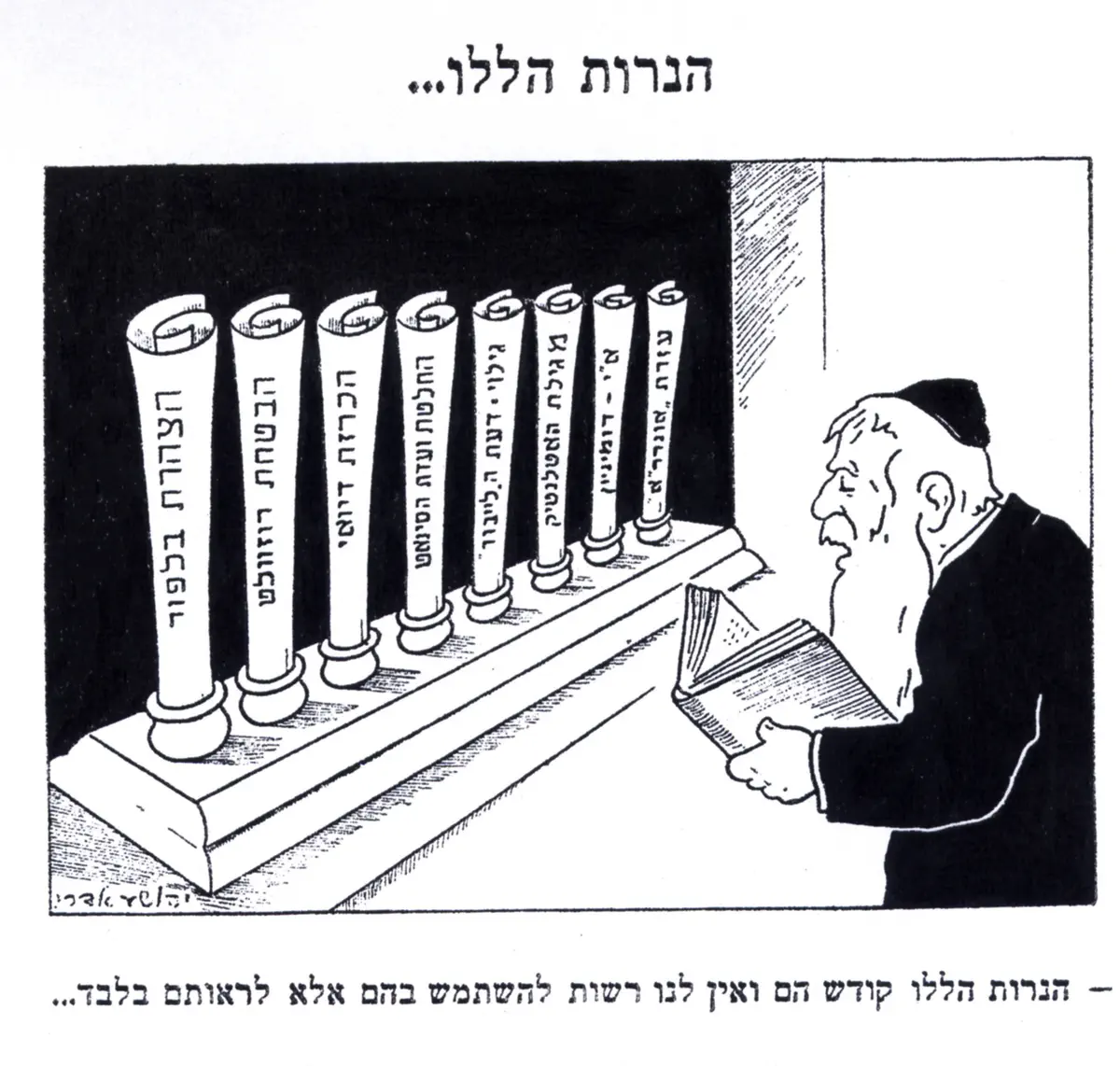
Adari, who emigrated from Poland to Eretz Yisrael in 1932, pulled no punches when it came to the Allies' positions on Zionism and the Jewish refugee crisis. On the eve of Hanukkah in 1944, he drew a striking cartoon that invoked the themes and language of the holiday to highlight the world's broken promises to the Jewish people.
But in Adari's cartoon, each of the candles was replaced by a scroll representing an unfulfilled promise or proposal made by a foreign government, from the 1917 Balfour Declaration to the 1930s "Dominion Plan," a proposal which would have established an autonomous Jewish national home within the British Empire, similar to Canada or Australia.

Caption:ואין לנו רשות להשתמש בהם אלא לראותם בלבד (These candles are holy and we are not permitted to make any use of them other than to gaze upon them)
One of the candles was named "Labor Party Platform." Earlier that year, the British Labor Party, then in opposition, adopted a platform plank calling for a Jewish state in Palestine. (It also recommended giving Palestinian Arabs financial assistance "to move out as the Jews move in.") But soon after Labor won the July 1944 elections, the new prime minister, Clement Attlee, and his foreign minister, Ernest Bevin, made it clear they would take no action to implement their party's pledge on Palestine.
The White Paper, prohibiting all but a trickle of Jewish immigration to the Holy Land, remained in force--even after the sinking of the refugee ship Mefkura, in August, which resulted in the drowning of more than 300 passengers.
A third candle in the cartoon menorah bore the words "Senate Committee's Decision." This referred to a bipartisan congressional resolution endorsing "the establishment in Palestine of a national home for the Jewish people." The resolution was adopted by the House Foreign Affairs Committee in November 1944, but ran into trouble in the Senate.
As a result of behind-the-scenes opposition by President Roosevelt, the Senate Foreign Relations Committee voted to indefinitely postpone consideration of the resolution. That vote took place on December 11--four days before Adari's cartoon.
Dr. Rafael Medoff is director of The David S. Wyman Institute for Holocaust Studies, in Washington, D.C. He is coauthor, with Craig Yoe, of the forthcoming book Cartoonists Against the Holocaust.
